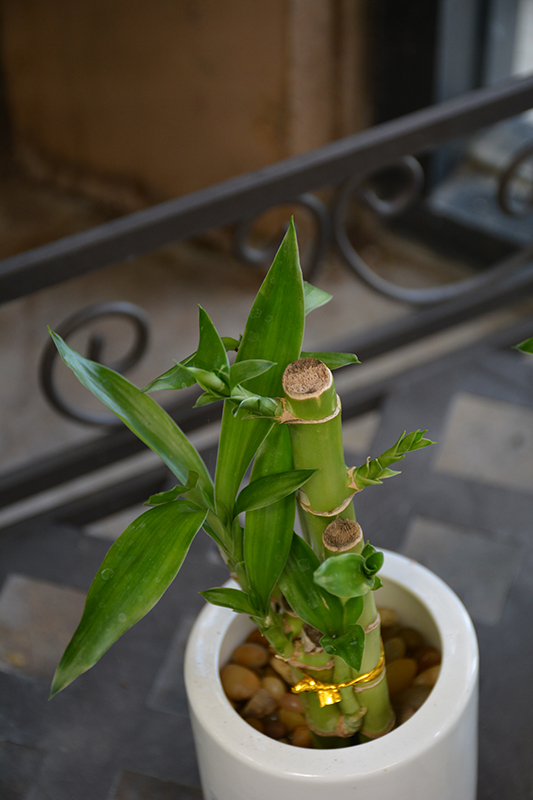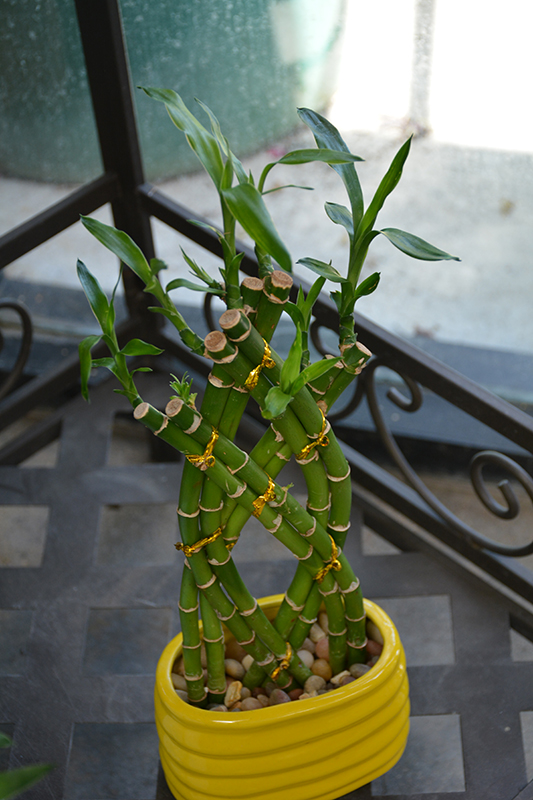|
|
|
| home | about us | loyalty program | products | directions | warranty | garden splendor ® | plant collector | landscaping | |
| Plant Finder | |
|
Height: 5 feet Spread: 3 feet
Sunlight:
Hardiness Zone: (annual) Other Names: Ribbon dracaena Description: A popular patio plant that is easy to grow and care for; produces dark green leaves on long, bamboo-looking stems; great for table tops, or coffee tables; prefers bright, indirect light but tolerates low-light conditions Ornamental Features Lucky Bamboo's attractive sword-like leaves remain green in color throughout the year on a plant with an upright spreading habit of growth. The green stems are very colorful and add to the overall interest of the plant. Landscape Attributes Lucky Bamboo is an herbaceous annual with an upright spreading habit of growth. Its relatively coarse texture can be used to stand it apart from other garden plants with finer foliage. This is a relatively low maintenance plant, and usually looks its best without pruning, although it will tolerate pruning. It has no significant negative characteristics. Lucky Bamboo is recommended for the following landscape applications;
Planting & Growing Lucky Bamboo will grow to be about 5 feet tall at maturity, with a spread of 3 feet. Its foliage tends to remain dense right to the ground, not requiring facer plants in front. Although it's not a true annual, this plant can be expected to behave as an annual in our climate if left outdoors over the winter, usually needing replacement the following year. As such, gardeners should take into consideration that it will perform differently than it would in its native habitat. This plant does best in partial shade to shade. It does best in average to evenly moist conditions, but will not tolerate standing water. This plant does not require much in the way of fertilizing once established. It is not particular as to soil type or pH. It is quite intolerant of urban pollution, therefore inner city or urban streetside plantings are best avoided. This species is not originally from North America. It can be propagated by cuttings. Characteristics
Applications
Features & Attributes
|
|

